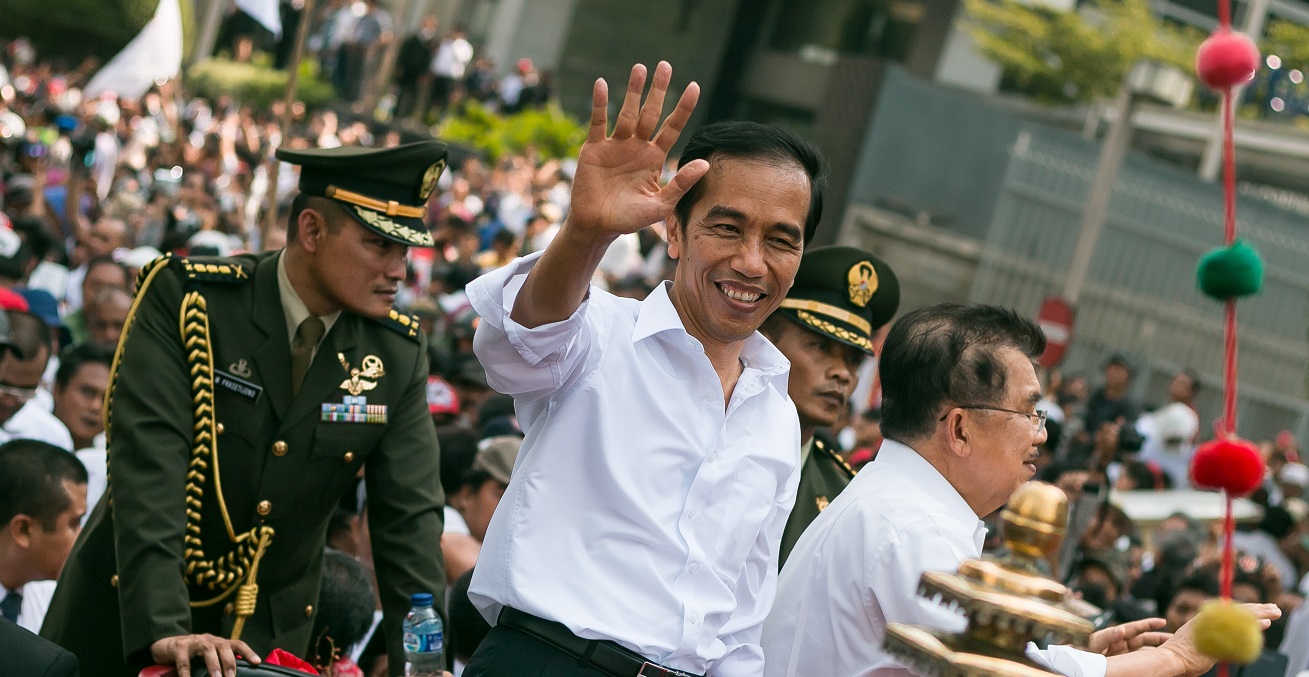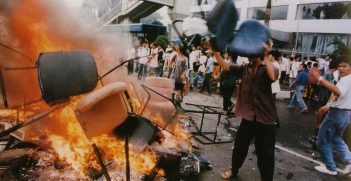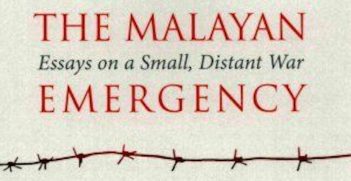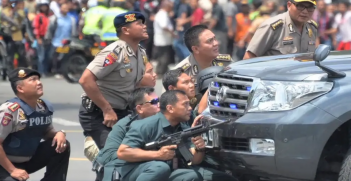Political Nous Checks Military Might in Indonesia

The sacking of the Indonesian armed forces chief earlier this month signalled the displeasure of Indonesia’s popular President Joko Widodo. What will be next?
On 8 December, President Joko Widodo (Jokowi) sacked his armed forces commander, General Gatot Nurmantyo, and promoted the air force chief, Air Chief Marshal Hadi Tjahjanto, in his stead. Gatot was sacked because of his propensity to exceed his authority, for example, in curtailing defence relations with Australia in January and for seizing police weapon imports in October, and for his increasing political profile that, whether sought or bestowed, was undermining the political neutrality of the Indonesian armed forces (TNI).
Gatot was due to retire at age 58 in April anyway so it could be argued that his early departure is designed to let his successor consolidate his authority over the TNI as it prepares to support the police to secure the mid-2018 elections in 171 provinces and districts. These will be followed, in mid-2019, by simultaneous national parliamentary and presidential elections. However, the haste with which his replacement was arranged was an indication of the president’s displeasure.
The fact that Jokowi (age 56) took such decisive action and installed an air force officer to replace Gatot is a measure of his growing political confidence. Jokowi continues to ride high in the polls, the economy continues to grow at above 5 per cent per annum, there is no obvious presidential rival for 2019 except for Lieutenant General (Retired) Prabowo Subianto (66), an effective parliamentary coalition has been forged, and several political parties have already declared their support for his reelection. Moreover, Vice President Yusuf Kalla (75) has declared that he is not seeking reelection, leaving Jokowi free to choose a new running mate to cement his coalition or appeal to female or pious religious voters or some combination thereof.
Although the military withdrew from active politics after the fall of Suharto in 1998 and terminated its structural parliamentary representation in 2004, it continues to regard itself as the guardian of the god-fearing but secular Pancasila state. Military doctrine also seeks to entwine the military and the populace, some politicians seek TNI support, and some officers use their office to support political contenders or movements or promote their post-military career prospects.
The glue for this elite/military embrace is mutual distrust of the ‘primordial’ passions of the populace. The people are perceived to be easily mobilised by irresponsible politicians and religious zealots and the police are perceived to be incapable of keeping them in check without military support. The military uses fear of the masses to argue for its continuing participation in policy-making through representation by retired officers in cabinet and retention of the TNI chief as an ex-officio member of cabinet. It also explains the continuing centrality of the army in a country that would otherwise prioritise maritime forces.
The appointment of an air force officer to command the TNI will not change these cultural and structural realities. Hadi’s promotion accords with the general post-1998 practice of rotating command of the TNI between the army, navy and air force. He was air force chief for less than a year and jumped several cohorts to reach the top but brings no special skills or experience to the job. He has commanded an air force base but has not held a senior command or staff appointment. Hadi has known Jokowi casually for several years and was his military secretary in 2015-16 so he will be keenly aware that he owes his promotion to Jokowi’s patronage.
Hadi will bring more focus to conventional defence policy and give greater priority to developing maritime and air forces but budget limitations will hobble his ambitions and the army will defend its central role and structure against any attempt to shift priorities or curtail its political linkages reaching down to village level.
Jokowi shows no sign of wanting fundamental military reform; his emphasis is on efficiency rather than effectiveness. He will also continue to promote retired officers to cabinet posts and use them in other critical posts where their ideological orientation and organisational and management skills can be employed. This strategy is calculated to get him reelected in 2019. Where he goes from there is unknown but if past experience is any guide it will take a major shock or historical disjuncture to force more fundamental reviews of defence policy and force structure.
Gatot Nurmantyo replaced another army officer, General Moeldoko, as TNI chief in July 2015 when Jokowi was feeling less politically secure and felt he needed to keep the army close. Whether Gatot will have a post-military political career depends on whether any political party wants him but the history of post-1998 TNI chiefs is that once retired their political value atrophies rapidly. Gatot’s public performances so far have not shown that he has the personal qualities that would make him an exception, especially for the presidency or vice presidency.
Robert (Bob) Lowry spent 30 years (1963-1993) in the Australian Army including postings in South Vietnam, Singapore and Indonesia. He is the president of the AIIA ACT.
This article is published under a Creative Commons Licence and may be republished with attribution.





